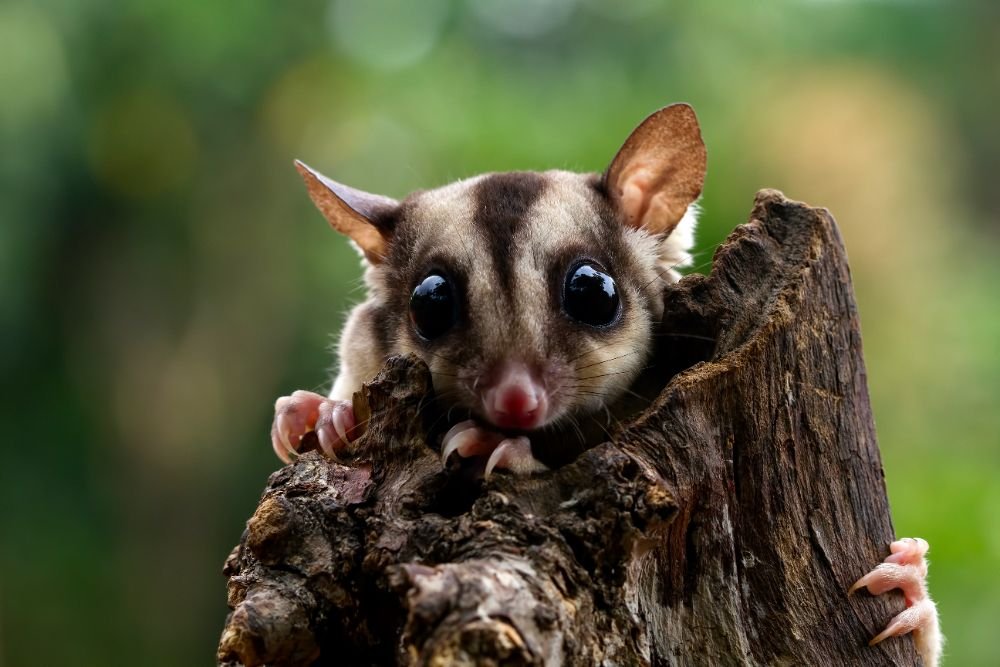Possums, also known as opossums in the United States, are fascinating creatures with a highly adaptable diet. These nocturnal marsupials are omnivores, meaning they eat both plant and animal matter. But what exactly do possums like to eat? Let’s explore their diet, along with some intriguing facts, expert insights, and surprising statistics.
The Omnivorous Nature of Possums
Possums have one of the most versatile diets in the animal kingdom. According to the Opossum Society of the United States, opossums are “nature’s ultimate opportunists.” Their diet depends on what is available in their environment, making them highly adaptable to different habitats. (opossum.org)
Here are the main categories of food that possums enjoy:
- Fruits and Vegetables Possums are fond of sweet fruits like apples, bananas, and berries. They also eat vegetables, particularly root vegetables like carrots and sweet potatoes. In the wild, they feast on native fruits such as persimmons and pawpaws.
- Insects and Small Animals Possums are avid insect hunters. They eat crickets, beetles, and grasshoppers. They also consume small animals, including frogs, lizards, and even mice. This protein-rich diet helps them stay healthy in the wild.
- Carrion Possums are scavengers and will eat carrion (dead animals) when available. This not only provides a source of nutrition but also helps clean up the environment.
- Plants and Leaves While fruits are their favorite, possums also eat leaves, flowers, and seeds. This is particularly true for species like the common ringtail possum, which feeds heavily on eucalyptus leaves in Australia.
- Human Food Scraps In urban areas, possums often raid garbage bins, feeding on leftovers such as pizza crusts, bread, and other scraps. Their opportunistic nature makes them a common sight in cities.

Fun Facts About Possum Eating Habits
- Possums Love Calcium: Possums have a strong craving for calcium, which is why they are often seen gnawing on bones or antlers left in the wild.
- Impressive Immune System: They can eat rotting fruit and carrion without getting sick, thanks to their robust immune system.
- Tick Terminators: Possums eat up to 5,000 ticks per season, significantly reducing tick populations in their habitats.
Stats and Insights
- A single possum’s diet is made up of about 70% plant material and 30% animal protein, though this can vary widely depending on the environment.
- Urban possums consume up to 25% of their diet from human-related sources.
- Possums have been known to survive harsh winters by eating stored fat and scavenging.
Expert Quote
The Opossum Society of the United States highlights the ecological role of possums: “By consuming a wide variety of foods, possums play an essential role in maintaining ecosystem balance. They help control insect populations, disperse seeds, and clean up carrion.” (opossum.org)
What Should You Feed a Possum?
If you encounter a possum in your yard and wish to provide food, consider these possum-safe options:
- Fresh fruits like apples, pears, and grapes
- Vegetables such as sweet potatoes and cucumbers
- Cooked eggs or lean meat (in small amounts)
- Dog or cat food as an occasional treat
Avoid feeding possums processed foods, dairy, or anything high in sugar or fat, as these can harm their health.
Conclusion
Possums’ diets are as diverse as their habitats. From fruits and insects to carrion and human scraps, these adaptable creatures can thrive in various environments. Their eating habits not only sustain them but also benefit the ecosystems they inhabit. As the Opossum Society of the United States aptly puts it, “Possums are a testament to nature’s resilience and resourcefulness.” (opossum.org)
So, the next time you see a possum, remember: it’s not just a scavenger; it’s a crucial part of the ecosystem, playing a small yet vital role in keeping nature balanced.



